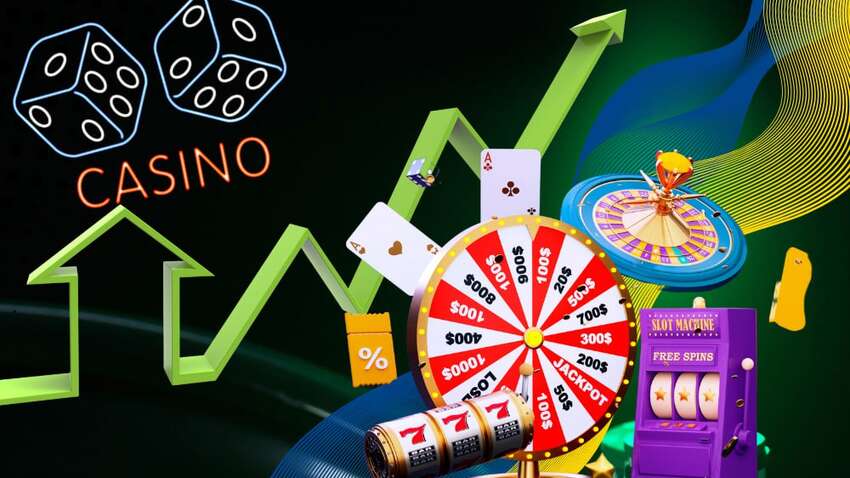The Evolution of Gambling From Ancient Times to Modern Day 0

The Evolution of Gambling From Ancient Times to Modern Day
Gambling has been an integral part of human culture for millennia, serving various purposes from entertainment to financial speculation. The Evolution of Gambling From simple forms of chance to complex global industries illustrates the ever-changing landscape of human behavior and societal norms. The Evolution of Gambling From Land to Online https://takabet-bd.com/ In this article, we’ll trace the history of gambling, examining how it has evolved through the ages, the impact of technology, and its current state in the world today.
Ancient Beginnings
The origins of gambling can be traced back to ancient civilizations where games of chance were often played as a means of divination or as a form of entertainment. Evidence of gambling activities has been found in various archaeological sites dating back to 3000 BC in China, where rudimentary forms of dice were used. Ancient Egyptians, Greeks, and Romans also engaged in gambling, with the latter even regulating the practice through various laws.
In these early societies, gambling was often intertwined with religious practices and social exchanges, reflecting a blend of superstition and chance. For example, the Romans utilized dice games during festivities, showcasing gambling as both a leisure activity and a means of socializing. Additionally, the introduction of betting on chariot races and gladiatorial contests broadened the appeal of gambling within these cultures.
The Middle Ages and Renaissance
The medieval period saw a decline in gambling, primarily due to a shift in societal values that favored piety and moral rigor. However, gambling never completely disappeared. Many forms of chance continued to flourish in secret, laying the groundwork for a resurgence during the Renaissance.
Innovations in card games, which originated in China and spread to Europe, became particularly popular. The advent of the printing press allowed for the widespread distribution of playing cards, leading to the establishment of various card games across nations. Gambling houses began to emerge in larger cities, which contributed to the normalization of betting.
17th to 19th Century: The Rise of Organized Gambling
The 17th century brought about significant changes in the gambling scene, with the establishment of betting houses in England and France. The concept of organized gambling began to take shape, laying the foundation for modern casinos. In 1638, the first official lottery was established in Italy, increasing public participation in gambling activities.
The 18th and 19th centuries witnessed the rise of gambling as a popular public pastime, with horse racing becoming a significant betting event. The introduction of modern gambling laws, such as those in the UK in the late 19th century, aimed to regulate gambling operations and protect players. This period also saw the establishment of seedy establishments and underground gambling dens, reflecting the dual nature of the gambling industry as both a source of entertainment and potential vice.
The 20th Century: Regulation and Legitimization

The 20th century marked a pivotal turning point in the evolution of gambling. The Great Depression and World War II led many governments to turn to gambling as a source of tax revenue. This period saw the legalisation of many forms of gambling, including casinos and state lotteries. The first modern casinos were opened in Las Vegas in the 1940s, establishing the city as the gambling capital of the world.
Gambling became increasingly commercialized, with major corporations investing in the industry. This era also witnessed the rise of sports betting and poker as mainstream forms of gambling entertainment. The introduction of gaming regulations aimed to create fair play and protect consumers, which contributed to the further legitimization of the gambling industry.
21st Century: The Digital Revolution
The 21st century has ushered in a new era of gambling, primarily driven by the internet and digital technologies. Online gambling exploded in popularity, providing users with unprecedented access to various forms of betting. From online casinos to sports betting platforms, the digital landscape transformed how people engage with gambling.
Advances in technology have not only expanded the range of available games but have also introduced features like live dealer games and mobile betting applications. This shift has made gambling more accessible than ever, allowing players to enjoy their favorite games from the comfort of their homes or on the go.
However, this digital transition has also presented challenges, including concerns over addiction, fraud, and regulatory compliance. Governments worldwide have grappled with how to regulate online gambling effectively, leading to a patchwork of regulations that differ from region to region.
The Future of Gambling
As we look to the future, the gambling industry is poised for further evolution. Technological advancements, such as virtual reality (VR) and blockchain, are set to reshape the gambling landscape. VR offers immersive gaming experiences, while blockchain technology enhances transparency and security.
Additionally, the continued rise of esports betting and the integration of artificial intelligence into gambling platforms will further diversify the industry. As cultural attitudes towards gambling continue to shift, it is likely that new markets will emerge, and existing ones will undergo significant transformation.
Conclusion
The Evolution of Gambling From ancient rituals to a multi-billion-dollar industry reflects broader societal changes and the enduring human fascination with chance and risk. Today, gambling is a varied and dynamic field that encompasses legal and illegal activities, regulated and unregulated platforms. Understanding its history allows us to appreciate its complexities and anticipate its future trajectory.
